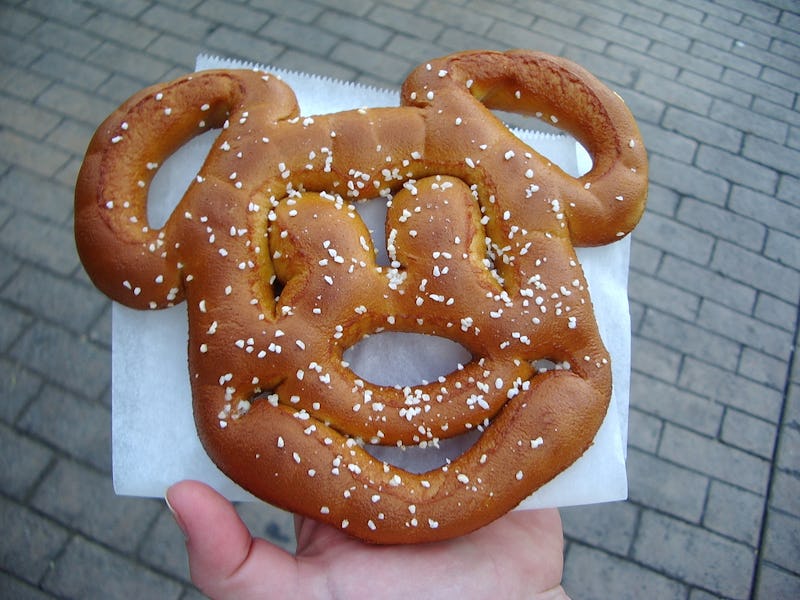Disney Parks Food Study Shows the Problems With Corporate Science, Not Hot Dogs
Mickey didn't want to be associated with defamed researcher James Hill.

Emails obtained by the health and science publication STAT have revealed that, in 2015, the Walt Disney Company encouraged an academic journal to withdraw a Disney-funded study.
Interestingly, the House of Mouse was not looking to suppress or even question the results — researchers found that the children’s meals at the theme-park were both nutritious and popular with guests — but to avoid the appearance of engaging in bad scientific practice or paying for shoddy research. Specifically, Disney was apparently trying to avoid association with James Hill, a nutritionist under fire for his less than clinical work with Coca-Cola.
In 2015, Hill found himself in the spotlight when The New York Times published the defamatory “Coca-Cola Funds Scientists Who Shift Blame for Obesity Away From Bad Diets” and The Denver Post announced “CU Nutrition Expert Accepts $550,000 From Coca-Cola For Obesity Campaign.” The Post reported that the same professor who had “launched a global campaign to fight obesity” had also received $550,000 from Coca-Cola, which also paid for his travel expenses and hired his son.
The Times reported that the soda giant was basically paying for the scientist’s previously excellent reputation in order to seem concerned about nutrition and protect itself from damning data. In the week that followed the articles, Hill denied that his research was swayed by the company’s dollar. This week a representative for Hill told Inverse that the $550,000 went directly to the University of Colorado Foundation and that Hill’s son did not get a job at Coke — rather, Hill inquired about internship opportunities for his son, which didn’t end up happening.
Hill is currently the Director for the Center for Human Nutrition at the University of Colorado Health Sciences Center.
This all goes to the point that once allegations began to be made in 2015, Disney also found itself funding science involving Hill and, seeing the scandal unfold, attempted to get as far away from the researchers as possible.
“Given the recent issues regarding Dr. Hill… we questioned the wisdom of publishing the study,” Disney spokesman David Jefferson told STAT.
The Disney emails concerning Hill, obtained via the Colorado Open Records Act by the California-based consumer group US Right to Know, reveal that after the study was accepted by the Journal of the Association for Consumer Research Disney asked the authors not to publish it. The editor of the journal, Brian Wansink, informed the authors that it was too late to withdraw, and — in a perfectly middle-school display of he said-he said — told Hill who told Disney that it was, “unethical for sponsors of research to have input into publication issues.”
When asked about Disney’s request, study co-author John Peters said that because Disney had never sponsored research before this paper, it didn’t know the rules. That response is questionable at best. Though Disney doesn’t have a history of sponsoring research related to its parks — this paper was about its own food and clients after all — it is no stranger to academic research. The Disney Conservation Fund provides grants to environmental research projects while Disney Research sponsors a network of research labs that “push the scientific and technological forefront of innovation.”
Update, April 13: This story has been updated with comments Hill’s representative.